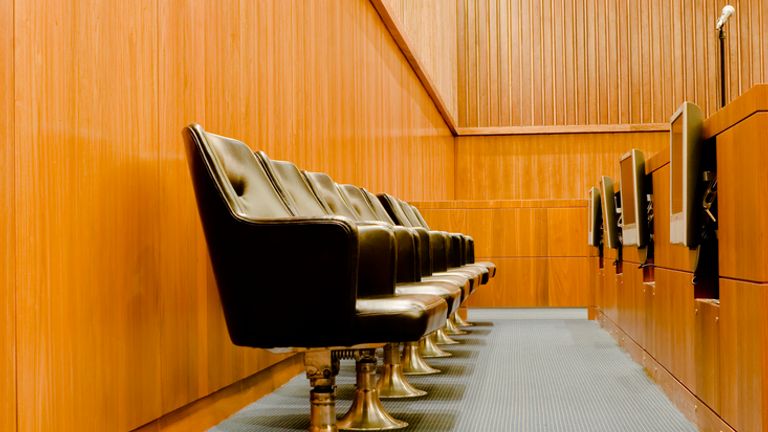The number of rape victims in England and Wales who see their attacker successfully prosecuted has hit a record low.
Latest figures from the Crown Prosecution Service (CPS) show that 1,439 rape cases resulted in a conviction for rape or another offence in 2019/20.
The figure is around 500 fewer convictions than the year before, and half as many successful prosecutions as three years ago.
Director of public prosecutions Max Hill QC said reversing that downward trend has become a top priority for police and prosecutors.
He said although the year-on-year figure did show a drop in the conviction rate, there were signs of a slight improvement in the last three quarters.
More than 55,000 allegations of rape were made to the police last year, but fewer than 2,100 cases made it to court.
There are several underlying factors at play which make it increasingly challenging for authorities.
Rape and sexual assault cases are very often one person's word against another, and investigations are increasingly reliant on electronic evidence from mobile phones and computers.
But many alleged victims are reluctant to hand over their phones and computers to authorities and victims' groups say the process can leave them feeling more like suspects.
Policing resources and the increasingly prolonged nature of investigations has also resulted in increasing numbers of alleged victims pulling out of the process before it reaches a decision.
The length of time it takes the CPS to decide whether a case should be prosecuted has also increased from around one-and-a-half months to five months, prompting it to launch a five-year blueprint to try to ensure police and prosecutors work better together.
Proposals include the use of more videotaped testimony from victims and vulnerable witnesses to save them from the ordeal of attending court and facing cross-examination in front of their alleged attacker.
Those victims who do still have to appear at trial could get a "digital walkthrough" so they know what to expect.
As part of the new strategy, prosecutors will be advised on how to deal with sexual violence within same-sex relationships or involving a transgender person.
Police will also be offered legal advice earlier on in investigations.
Mr Hill said that while the number of rape cases that resulted in prosecution was low as the UK went into lockdown, figures have risen in recent months.
He said: "What I am encouraged by in this reporting quarter is that the trends are moving in the right direction.
"That means in particular the proportion of cases that are brought to the CPS by the police that we are able to charge, to take to court, continues to rise."
Last month the End of Violence Against Women (EVAW) coalition called for an investigation into how the CPS deals with rape over claims many so-called "weaker" cases are failing to reach court.
Sue Hemming, CPS legal director, said at the time that there had been no change in how rape cases are handled.
https://news.google.com/__i/rss/rd/articles/CBMiaGh0dHBzOi8vbmV3cy5za3kuY29tL3N0b3J5L3JhcGUtY29udmljdGlvbnMtaGl0LXJlY29yZC1sb3ctYXMtanVzdC0yLTEwMC1jYXNlcy1tYWtlLWl0LXRvLWNvdXJ0LTEyMDM4ODM40gFsaHR0cHM6Ly9uZXdzLnNreS5jb20vc3RvcnkvYW1wL3JhcGUtY29udmljdGlvbnMtaGl0LXJlY29yZC1sb3ctYXMtanVzdC0yLTEwMC1jYXNlcy1tYWtlLWl0LXRvLWNvdXJ0LTEyMDM4ODM4?oc=5
2020-07-30 09:45:00Z
52780963005771

Tidak ada komentar:
Posting Komentar